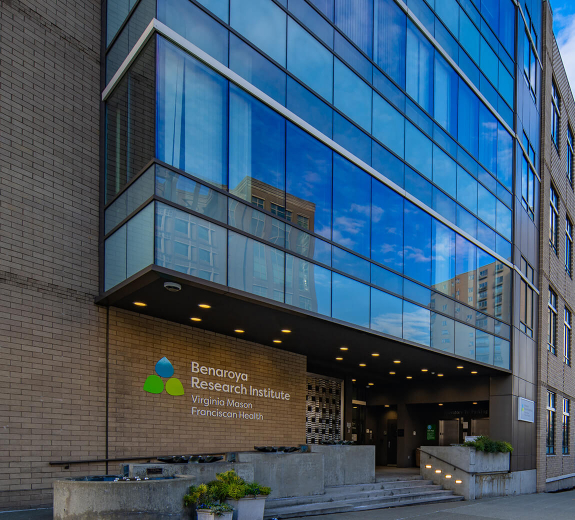Scientists at Benaroya Research Institute at Virginia Mason (BRI) have received a $5.4 million, five-year contract award from the National Institutes of Allergy and Infectious Disease, part of the National Institutes of Health (NIH), to identify the targets of immune cells in the joints of individuals with rheumatoid arthritis.
With the funding, BRI scientists will profile the tissue and blood of people with rheumatoid arthritis who are undergoing knee replacement surgery. First, the scientists will seek to identify protein fragments, or biomarkers, involved with the chronic autoimmune disease and predictive of whether patients will respond to a specific treatment.
Ultimately, the goal will be to directly target those cells that attach to the joints in rheumatoid arthritis to prevent autoimmunity – and stop the disease.
About 70% of rheumatoid arthritis patients test positive for two specific autoantibodies associated with the disease. With the newly funded research, the scientists will search for and identify additional biomarkers associated with the disease.
Finding cells that are responsible for rheumatoid arthritis is challenging for scientists, as T cells that drive disease are very rare. However, BRI has developed new tools to find these cells – in this case, within human joints – and evaluate their potential to be leveraged to treat rheumatoid arthritis.
The identification of biomarkers can provide scientists with the tools to improve treatments through precision medicine, i.e. tailoring treatments to the patient.
"We will be able to help more patients by using T cells as biomarkers to predict whether a specific treatment will be effective," said BRI scientist Bill Kwok, PhD, who will lead the research. "Our studies will focus on identifying more biomarkers associated with rheumatoid arthritis, which will enable us to monitor how patients are doing after therapy and over time."
Along with Dr. Kwok, the research team includes Eddie James, PhD, and Jane Buckner, MD, President of BRI and a rheumatologist; as well as collaborators at the University of Washington and other physicians and patients at Virginia Mason Medical Center.
"This funding supports our search to identify what the immune system is attacking in rheumatoid arthritis (RA) patients, said Buckner. "We already know that in RA, the immune system attacks healthy tissue, but the goal of this grant is to identify the very specific protein codes that T cells see and respond to as dangerous."
Discovering what triggers the T cells to cause joint damage will equip scientists to target therapies to patients at the appropriate stage of disease, Buckner said, and may also lead to a better understanding of how rheumatoid arthritis can begin, progress and persist.



